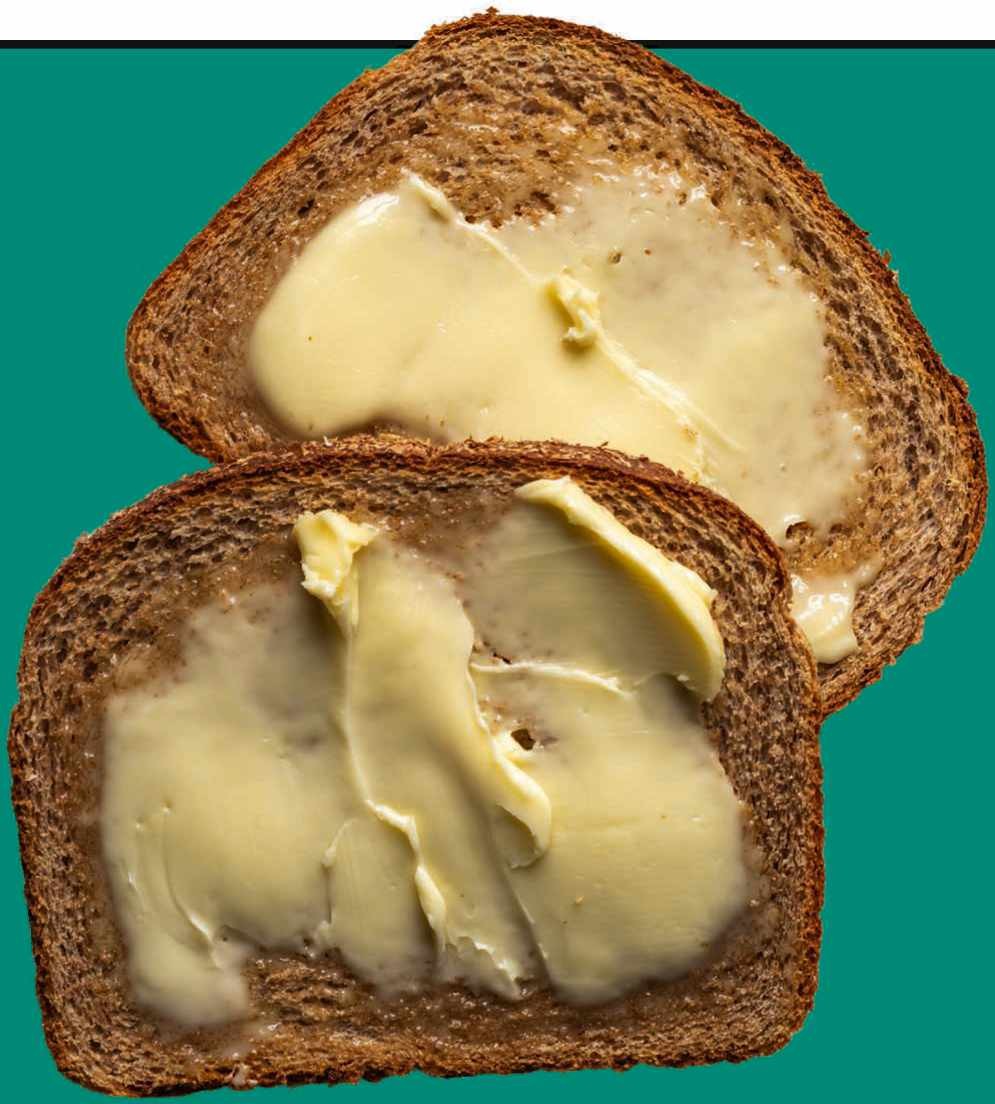Spread the word: there’s no easy answer to this question because butter versus margarine is a debate that’s been churning for more than a century. It’s complicated by our often-evolving understanding of fats, plus the fact that margarine has been made to different standards and with different processes over time and by country. This means some of the literature out there is no longer relevant to the margarine found on supermarket shelves today.

The bottom line, as things stand, is that most researchers believe that neither margarine nor butter are particularly healthy. Both are high in fat and calories. Margarine is classified as an ultra-processed food and these are increasingly linked to poor long-term health. Butter is higher in saturated fat, which is still associated with higher levels of cholesterol in our arteries and the risk of cardiovascular disease. Margarine is a good source of omega-6 polyunsaturated fats (one of the good ones), but some hydrogenated margarine is high in a type of saturated fat known as trans-fat (one of the worst, strongly linked to the grimmest long-term health prospects). Other types of spread, including some made from olive oil are also hydrogenated. So, overall it’s a complicated matter. There’s also a dosage consideration. If you’re scraping a blob of butter or margarine across some sourdough toast once or twice a week, then it’s unlikely to be the thing that kills you. If it’s a bedrock of your diet, then it’s probably a good idea to look for substitutes or other ways to switch up the food on your plate. Remember that some fats are good for you. Dietitians recommend the monounsaturated fats in avocado (great on toast) or olive oil (great in the pan) as a way of managing low-density lipoprotein cholesterol.